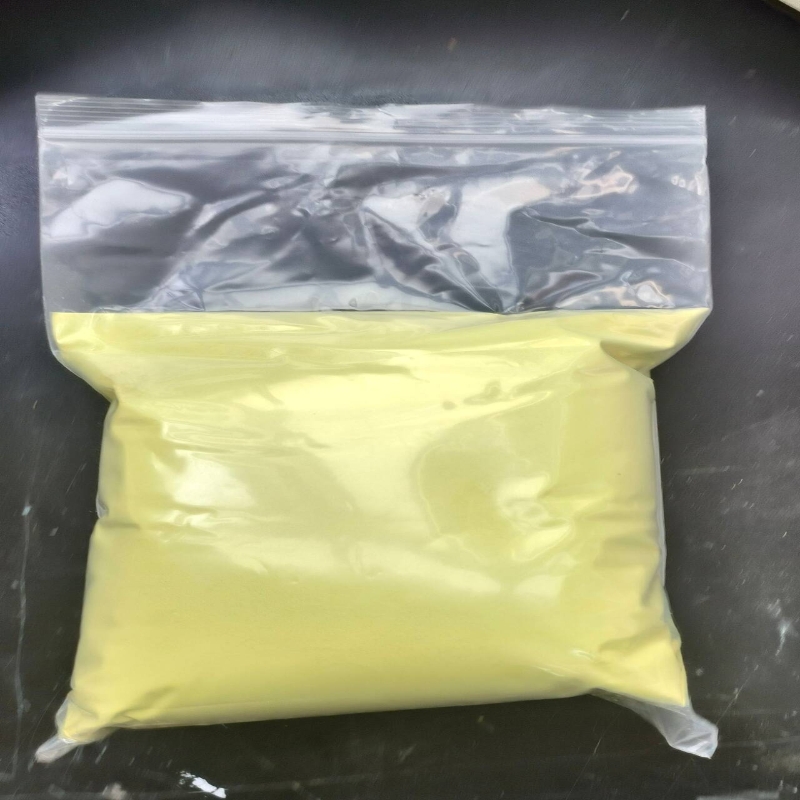-
Categories
-
Pharmaceutical Intermediates
-
Active Pharmaceutical Ingredients
-
Food Additives
- Industrial Coatings
- Agrochemicals
- Dyes and Pigments
- Surfactant
- Flavors and Fragrances
- Chemical Reagents
- Catalyst and Auxiliary
- Natural Products
- Inorganic Chemistry
-
Organic Chemistry
-
Biochemical Engineering
- Analytical Chemistry
- Cosmetic Ingredient
-
Pharmaceutical Intermediates
Promotion
ECHEMI Mall
Wholesale
Weekly Price
Exhibition
News
-
Trade Service
On October 15th, Tiantian Announced that its CD47 monoclonal antibody will be announced as a poster during the 35th Annual Meeting of the Society for Cancer Immunotherapy (SITC 2020) from 9 to 14 November 2020 Lemzoparlimab (also known as TJC4) is used to treat recurring or re treatable malignancies in the United States phase 1 dose climbing trial data, including drug clinical safety data, pharmacodynamics and pharmacological dynamics data, as well as preliminary drug ability data.
has been in the spotlight since September, mainly because of its focus on the drug, CD47 monoantial TJC4.
the hottest target of 2019, PD-(L)1 deserves it.
in the O drug, K medicine has been listed in the domestic market, the domestic Junshi, Thyda, Hengrui, Baiji you chase me, good or not lively.
but with the influx of companies, the track's development tends to be crowded, with some analysts describing the current development as a "Tini explosion and a proliferation of PD-1s."
for pharmaceutical companies, the high return on research and development depends on the development of new targets and new adaptations that are long-term exclusive.
, the eyes of the pharmaceutical companies gradually shifted away from the hot track, and from the MNC Gilead and AbbVie's action, CD47 began to enter the public eye.
, at CD47 this track, there is no global product market, leading domestic pharmaceutical companies including Hengrui Pharmaceuticals, Cyda Bio, Yiming Anke, Tianyuan Bio, Hangzhou Hans Bio and so on.
MNC and CD472020, Gilead Science, which is based on Redsiway, paid $4.9 billion for forty Seven, a biotech company whose name is particularly interesting, meaning it focuses only on CD47 antibody research and development, in a deal worth twice the market value of Forty Seven.
the latter was established in 2015 and in recent years has focused on cd47 signaling paths with a view to developing innovative therapies for cancer treatment.
September 4, 2020, AbbVie established a global strategic partnership with Tianbi in the development and commercialization of innovative CD47 single-resistant TJC4.
will receive a $1.94 billion installment milestone payment through License Out, as well as a graded royalty of up to double digits in future global sales.
CEO Dr. Sein Huajun said at the CHS2020 Summit: "Heavenly Life's CD47 monoantigen TJC4, unlike other known CD47 antibodies, has a unique binding table that binds to a minimum with red blood cells without coagulation and has strong anti-tumor activity."
CD47 antibody opens the door to the mobilization of macrophages for tumor immunotherapy.
with the entry of the MNC, CD47 has become more and more of a concern.
CD47 is a protein (including red blood cells) expressed by normal cells that inhibits macrophage phagocytopyte phagocytopic activity by binding to SIRP-α on the surface of immune cells (macrophages) in the body, playing the role of "don't eat me".
when cells age or become lesions, CD47 on the cell surface is gradually lost, and macrophages can "eat a full meal."
, however, in 2009, a Stanford University professor found that almost every type of cancer cell also had large amounts of CD47 protein to help them escape macrophages.
, inhibiting the expression of cancer cell CD47 became one of the pathways of tumor therapy, and CD47 antibodies achieved immune cell phagocytos by blocking the expression of CD47 on the surface of cancer cells.
Forty Seven and Tiantian Bio, both mentioned above, are developing monoclonal antibodies that block CD47 signals, of which Forty Seven's Magrolimab is in Phase 1b, Andy's TJC4 is currently conducting Phase I clinical in the United States and has been approved for IND in China.
limitations of CD47 antibody drugs, CD47 antibody drugs are not perfect.
2017, Arch Oncology terminated its CD47 monoanti-anti-Ti-061 solid tumor clinic in Europe.
unique, in 2018, New Base terminated its CD47 monoantigen CC-90002 clinical trial for the treatment of acute myeloid leukemia.
this must start with the single anti-drug antigen binding fragment (FAB, Fragment Antigen Binding) and the crystalline segment (FC, Fragment Crystallizable).
antibody FAB region identifies the intrusive source antigen, the FC region can bind to the FC subject on the immune cell, and then activate the response function of the immune cell, such as phagocytospheric and cytotoxic killing, to destroy the infested source to remove.
CD47 monoantigen cd47 antibody drug induces macrophages to "kill" red blood cells by mistake.
Ideally, the FC fragment of the CD47 antibody binds to sirP-α on the surface of the macrophage, while the FAB fragment binds to the CD47 of the cancer cell, blocking the "don't eat me" signal, which in turn allows the macrophage to devour the cancer cell.
However, since red blood cells also express CD47, if CD47 monoantigens bind to red blood cells, it is possible to destroy red blood cells through two mechanisms: first, the association of antibodies with red blood cells causes red blood cell clotting, triggering cleavage of red blood cells;
understanding the toxic reactions caused by CD47 antibody drugs, scientists began to study the action of CD47 antibodies, the core action of CD47 antibodies including: First, blocking CD47/SIRP-α "Don't Eat Me" signal The second is to act on cell-mediated cytotoxicity of monoclonal antibodies (ADCC, Antibody-Dependent Cell-mediated Cytoxicity) and complement-dependent cytotoxicity (CDC, Complement Dependent Cytoxicity).
ADCC refers to the role of antibodies-mediated immune cells directly killing cancer cells, CDC refers to the antibody and antigen epigenetic binding, the formation of the membrane compound lysis target cells.
in both mechanisms, the role of ADC and CDC is reduced in design because THED47 antibody is too strong, resulting in an excess of CD47 antibodies leading immune cells to kill red blood cells.
, but relying on the physiological function of CD47/SIRP-α itself is not sufficient to activate a significant anti-tumor response.
for these two ideas, different enterprises began to adopt different improvement strategies.
idea is to reduce the strength of ADC and CDC to reduce the cd47 antibody's lethality to red blood cells.
this idea, companies develop IgG4 antibodies instead of IgG1 antibodies that trigger strong ADC and CDC effects in exchange for safety.
Trillium's TTI-622 is an IgG4 antibody that was found in tests to send more moderate phagocytoid signals to macrophages, and in in-body trials, TTI-622 showed properties that do not bind significantly to human red blood cells.
In the selection of antibody drug subtype IgG, Yimingenko founder Wenzhi Tian said: "For immune cells, choose IgG4 (e.g. O, K), target for tumor cells, choose IgG1 (e.g. EGFR, Her2 and other targets).
Because CD47 is expressed in tumor cells, IgG1 should be chosen as justified, but since red blood cells also express CD47, IgG1 should not be chosen in order to avoid antibody binding to red blood cells, otherwise it will cause severe blood toxicity.
" second idea is that not all antibodies cause red blood cell coagulation, which can be screened for antibodies that do not cause red blood cell clotting.
this idea has limitations, and although CD47 antibodies have a lower mediated lethality to red blood cells, the lethality of plateplates still exists.
idea is to adopt a Fc side that is not biologically active, completely discarding the ADC and CDC utility and relying only on the physiological function of CD47/SIRP-α itself.
But because relying on CD47 and SIRP-α alone is not sufficient to activate the anti-tumor response, its clinical efficacy is greatly reduced, so this idea often requires the use of other drugs, such as CD20 or PD-(L)1, to enhance anti-tumor effectiveness.
's IM0306 is a dual-specific antibody that targets both CD47 and CD20, reducing the toxicity of CD47 targets while removing the "Don't Eat Me" signal to play tumor immunotherapy, taking into account effectiveness and safety.
IBI-322, which is also a dual-specific antibody, also targets CD47 and PD-L1.
the potential side effects of CD47 antibodies are reduced because IBI-322 molecules are preferred to PD-L1-positive tumor cells.
.




![2-(Hydroxymethyl)benzo[b]thiophene](https://file.echemi.com/fileManage/upload/cas/593/e79a972f-b55d-4dc1-9113-841c417e0a89.png)


